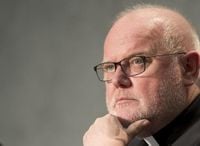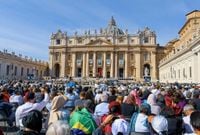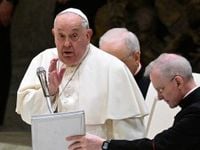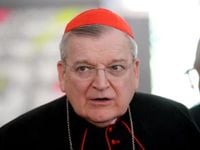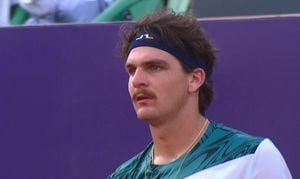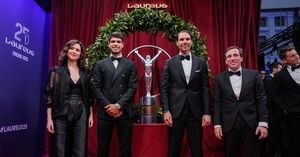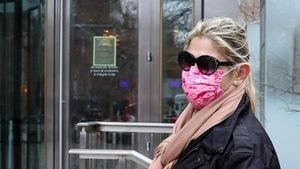Pope Francis died on the morning of Easter Monday, April 21, 2025, at the age of 88, leaving the Catholic Church to ponder who will be his successor. The papal conclave, a secretive assembly of cardinals, is set to convene, and several candidates are already being discussed as potential successors to the beloved pontiff.
Among the front-runners is Cardinal Raymond Burke, a 76-year-old American cleric known for his staunch conservative views and his frequent clashes with Pope Francis. Burke's name has gained traction, especially with vocal support from U.S. President Donald Trump, who has praised him as a defender of traditional Church values. Despite being ranked sixth among bookmakers' favorites, Burke's candidacy has sparked debate about whether the Church will continue the progressive legacy of Pope Francis or revert to a more traditionalist approach.
Burke's history within the Church is marked by tension; he was removed from the Congregation of Bishops in 2013 and dismissed from the tribunal in 2014 by Pope Francis. In 2023, the Vatican revoked his rent-free apartment and monthly stipend, a move framed as a reassignment of privileges rather than punishment. Nonetheless, Burke has maintained that he does not consider Pope Francis an adversary.
Other notable candidates include Cardinal Pietro Parolin, the 70-year-old Secretary of State for the Vatican since 2013. Parolin is viewed as a compromise candidate who could bridge the gap between progressive and conservative factions within the Church. He has been instrumental in diplomatic efforts, including the Holy See's controversial deal with China regarding bishop nominations. His extensive experience in Church diplomacy could position him favorably among cardinals seeking continuity with Francis's approach.
Cardinal Matteo Zuppi, 69, president of the Italian bishops' conference and a close ally of Pope Francis, is also being considered. Known for his work with marginalized communities and his role in peace negotiations, Zuppi embodies the compassionate and inclusive vision that Francis championed. His recent mission to promote peace in Ukraine further highlights his commitment to social justice.
Another candidate is Cardinal Luis Antonio Tagle, 67, a Filipino cleric who previously served as the archbishop of Manila. Tagle is often referred to as the "Asian Francis" due to his similar focus on social justice issues. His extensive pastoral experience and fluency in multiple languages make him a strong contender, though his relatively young age may raise concerns among cardinals about the longevity of his papacy.
Cardinal Peter Erdo, 72, the archbishop of Budapest, is recognized for his ability to connect with both conservative and progressive elements within the Church. He has been considered a papal contender since the last conclave in 2013 and has maintained a pragmatic approach, avoiding open clashes with Pope Francis. His fluency in several languages could aid in fostering dialogue between the Catholic Church and the Russian Orthodox Church, especially in light of the ongoing conflict in Ukraine.
Cardinal Mario Grech, 68, the secretary general of the Synod of Bishops, is another significant figure in the running. Initially viewed as conservative, Grech has evolved into a proponent of Francis's reforms. His ability to navigate the complex dynamics of the Church, along with his emphasis on consensus-building, could position him favorably in the conclave.
Cardinal Jean-Marc Aveline, 66, the archbishop of Marseille, has also emerged as a potential candidate. Known for his approachable demeanor and strong intellectual background, Aveline is seen as ideologically aligned with Pope Francis, particularly on issues such as immigration. If elected, he would become the first French pope since the 14th century, a significant historical milestone.
As the conclave approaches, the candidates are under scrutiny, and the stakes are high. The winner must secure at least two-thirds of the votes from the 138 cardinals under the age of 80 who are eligible to participate. The process is not merely a political maneuver but is steeped in tradition and spirituality, with the cardinals praying for divine guidance in their decision.
In the wake of Pope Francis's death, the Catholic Church faces a pivotal moment. Will the next pope continue the progressive reforms championed by Francis, or will the Church revert to a more traditionalist stance? The answer lies in the hands of the cardinals as they gather to elect the next leader of the world's 1.3 billion Catholics.
